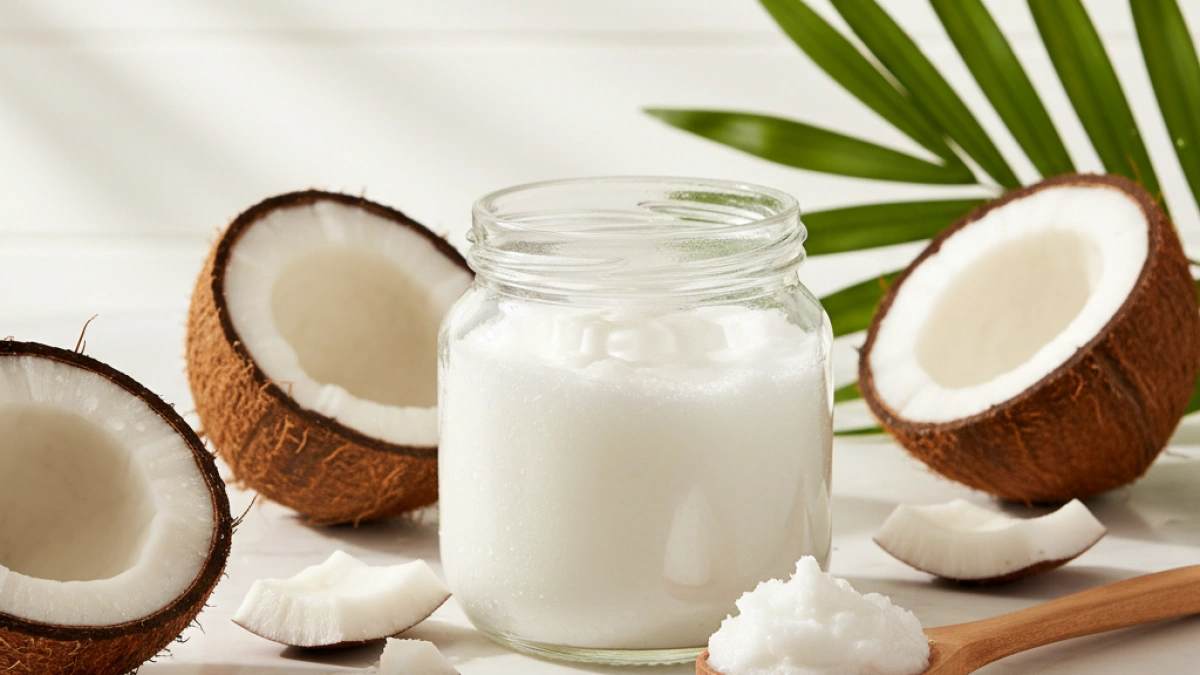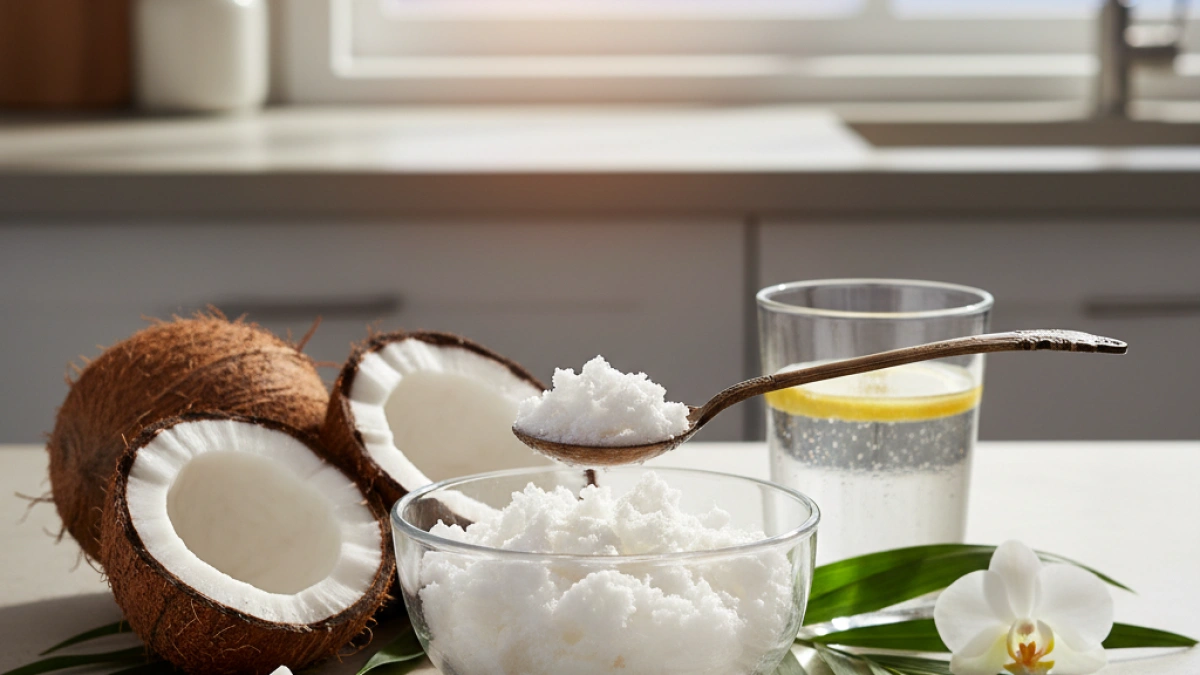Coconut oil: properties and health benefits

Coconut oil has gained popularity in recent years due to its multiple properties and health benefits. This product, derived from the fruit of the coconut tree, has a rich composition that can contribute to improving various aspects of our lives. In this article, we will explore its most notable characteristics and how it can be integrated into a healthy routine.
Composition of Coconut Oil
Coconut oil is primarily composed of saturated fats, mostly medium-chain fatty acids. The two most important are lauric acid and caprylic acid. These acids have antimicrobial properties and may help increase HDL cholesterol (the "good" cholesterol) in the body.
Fatty Acids and Their Impact on Health
Medium-chain fatty acids differ from the long-chain fatty acids found in other oils. Their metabolism is faster and more efficient, facilitating their conversion into energy rather than being stored as fat. This means that coconut oil can be a good option for those looking to improve their physical performance as well as for those wishing to manage their weight.
Benefits of Coconut Oil
The consumption and use of coconut oil have been linked to several health benefits, detailed below:
Read also
1. Increases Energy and Sports Performance
Due to its rapid absorption, coconut oil becomes an instant source of energy. This makes it an ally for athletes and active individuals seeking to enhance their performance.
2. Improves Cardiovascular Health
As mentioned earlier, the lauric acid present in coconut oil can help raise HDL cholesterol levels. Moreover, some studies suggest that regular consumption could improve lipid profiles and reduce the risk of heart disease. However, it is essential to consume it in moderation, as it is highly caloric.
3. Antimicrobial Properties
Coconut oil is known for its antimicrobial properties, which can help combat bacteria, viruses, and fungi. This makes it a useful oil not only for cooking but also for personal hygiene, as it can be used in making soaps and oral care products.
Read also
Using Coconut Oil in Cooking
Coconut oil is very versatile in the kitchen. It can be used for cooking at high temperatures, such as frying and sautéing, thanks to its high smoke point. Additionally, its distinctive flavor can add a special touch to smoothies, desserts, and exotic recipes. It is also an excellent alternative to other oils for those looking to reduce their trans fat intake.
Daily Options
To incorporate coconut oil into the diet, it can be added to yogurts, oatmeal, or used as a salad dressing. However, it is advisable to limit its use to a couple of tablespoons per day to maintain a dietary balance.
Final Considerations
While coconut oil can offer several benefits, it is important to remember that each person is different. Consulting a health professional before making significant dietary changes is always recommended.
I invite you to continue exploring topics of interest related to health and wellness on my blog. There, you will find more useful and entertaining information to lead a healthier lifestyle.











































